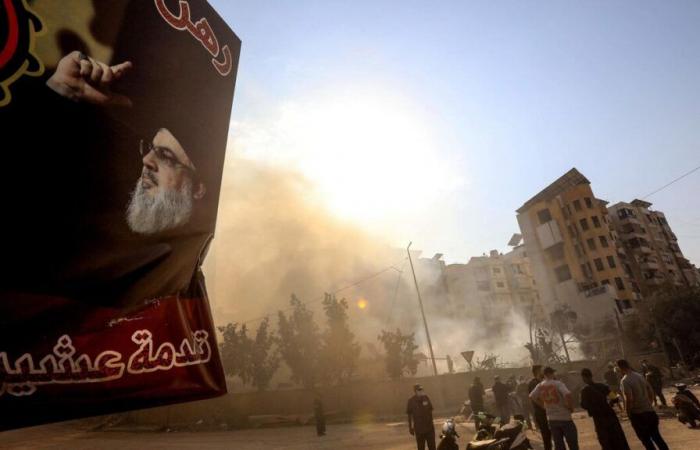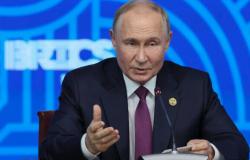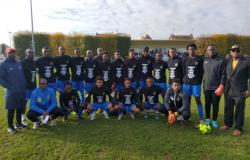Lebanon still under Israeli fire. The Lebanese Prime Minister accused Israel on Friday of refusing any ceasefire with Hezbollah, after a series of airstrikes on the southern suburbs of Beirut, the first this week on this stronghold of the Islamist movement. Lebanon has announced 52 deaths in Israeli strikes in the east of the country.
The Israeli air force carried out at least ten strikes on the southern suburbs at dawn, which caused strong explosions and transformed entire buildings into piles of rubble and smoking ashes. These strikes came a few hours after a visit to Jerusalem by two American envoys who tried to negotiate an outcome to the war pitting Israel against Hezbollah, supported by Iran, since September.
The fact that Israel “has once again targeted the southern suburbs of Beirut” and carried out “destructive raids, are all indicators which confirm its refusal of all efforts deployed to obtain a ceasefire”, he said. declared Lebanese Prime Minister Najib Mikati.
Ancient cities “in danger”
The Israeli army claimed to have struck Shiite movement targets in the Beirut and Nabatiyeh areas in the south. Bombings also targeted the region of Baalbeck (east), killing at least ten people according to the Lebanese authorities, and the city of Tire (south), where a building collapsed on the seafront, according to a correspondent for the AFP.
“It’s a residential area, there’s nothing military here. I have a disability, how am I supposed to escape? “, lamented Ghassan al-Shal, a resident of a village near Baalbeck. The Lebanese National Information Agency (Ani) also reported strikes on the Bint Jbeil (south) and Aley regions, east of Beirut.
After repeated strikes on Baalbeck and Tyre, two cities classified by Unesco on its world heritage list, a UN official said she feared that the war would affect the country’s ancient sites. “Ancient Phoenician cities, steeped in history, are in great danger of being left in ruins,” wrote the UN special coordinator for Lebanon, Jeanine Hennis-Plasschaert, on X. “Lebanon’s cultural heritage must not be another victim” of the war, she added.
American mediation
Israel has been increasing air strikes in Lebanon since September 23, accompanied since September 30 by a ground offensive in the south. At least 1,829 people have been killed since September 23 across the country, according to an AFP count based on official data.
Israel says it wants to neutralize Hezbollah, an ally of the Palestinian Islamist movement Hamas, in southern Lebanon to allow the return of 60,000 inhabitants of the north of its territory displaced by incessant shooting for more than a year. The Israeli army also announced on Friday that it had intercepted seven drones approaching its territory during the night and launched from “several fronts” by “terrorist groups”, without specifying which ones, adding that it had destroyed more than 100 drones threatening the country in October.
A few days before the presidential election in the United States, Israeli Prime Minister Benjamin Netanyahu received American envoys Amos Hochstein and Brett McGurk on Thursday, who then left for Washington.
According to Israeli media citing government sources, the envoys carried a plan providing for a withdrawal of Hezbollah from the border areas of southern Lebanon, as well as the withdrawal of the Israeli army from this region, control of which would return to the Lebanese army and UN peacekeepers. But Israeli officials said soldiers would not withdraw from southern Lebanon until an agreement that would meet Israel’s security requirements.
“Imminent risk of death”
At the same time, Israel continues its offensive against Hamas in the Gaza Strip. Nighttime strikes on houses left nine dead in Jabalia (north) and Nousseirat (center), according to the Palestinian movement’s health ministry. “The morgue of Al-Aqsa hospital in Deir el-Balah” (center) “is full of bodies, mostly children and women,” after the strikes in Nousseirat, said a ministry official, Marwan al -Hams.
Strikes occur “every day, at noon, in the afternoon, at night. Yesterday, there were six,” Ezzeddine Abou Chawich, a resident of the bombed neighborhood, told AFP. The situation in the north of the territory is “apocalyptic” and all of its inhabitants are at “imminent risk of death”, officials from major UN humanitarian agencies warned on Friday.
The WHO also announced that vaccination against polio, interrupted in the north due to bombings, would resume on Saturday thanks to a “humanitarian pause”. The army announced that it had killed “dozens of terrorists” in the Jabalia sector and central Gaza, and that since the day before it had targeted “more than 200 targets” of Hamas in Gaza and Hezbollah in southern Lebanon.
The Palestinian movement announced Friday that it had refused to study a proposal for a short truce proposed by the mediating countries, demanding “a complete and permanent ceasefire.” The war in Gaza was triggered on October 7, 2023 by the unprecedented attack carried out by Hamas against Israel, which resulted in the deaths of 1,206 people, mostly civilians, according to an AFP count based on official data. Israeli forces, including hostages killed or died in captivity.
Of 251 people kidnapped, 97 remain hostages in Gaza, 34 of whom were declared dead by the Israeli army. Israel’s retaliatory offensive in Gaza left 43,259 dead, mostly civilians, according to data from the Hamas government’s Health Ministry.






